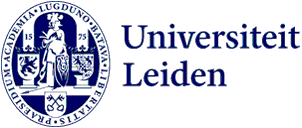
How do you keep citizens engaged in democracy? An interview with Carola Schoor
If you want easy answers to governance questions, you might as well abolish democracy, believes Dr. Carola Schoor. A democracy should challenge and raise questions. For a balanced and just rule of law, a 'constitutional compass' is needed.
Why is there a need for attention to the democratic rule of law?
‘In The Hague, the emphasis over the past decades has been primarily on efficient governance. Very pragmatic, with little regard for the rule of law. As a result, there have been significant missteps, such as the childcare benefits scandal. It is now important to reflect on the rule of law aspect of governance. This involves knowledge; for example, what are the principles of a democracy? What are fundamental rights? And it also involves actively and thoroughly thinking through and discussing case studies. Is this just? Does this violate people’s fundamental rights? What makes someone principled? What are my own biases?’

In November, the third edition will kick off. Where do you currently stand?
‘The first edition was very well received. The combination of academics and practitioners created a great mix, and the institutional visits were highly appreciated. It truly brought to life what happens in all those Hague buildings. We were hosted by the National Ombudsman, the Council of State, and the Senate. However, a lot of information was presented to the participants, which is why an additional one and a half course days have been added, allowing for more space to cover the fundamentals and the role of the media. There is also a 'winter or summer break': participants read a book and discuss it together, providing time to digest the course material. Alumni activities are also organised so that people can recalibrate their rule of law compass.’
Carola explains how to develop a rule of law compass at the Academy for the Rule of Law:
‘You learn from both academics and each other, engage in stimulating discussions with participants from various fields, and gain an understanding of each other's positions.’
Could you elaborate on that rule of law* compass?
*In the recommendations of the final report of the State Commission on the Rule of Law, this is also discussed (June 10, 2024):
'The recommendation that people need to develop a rule of law compass or antenna (in Dutch) is spot on. The democratic rule of law is not straightforward. If you want easy answers, you might as well abolish democracy. A democracy challenges us and requires everyone to think and engage. There needs to be an alarm bell that goes off when issues are brushed aside too easily. Moreover, there is no one-size-fits-all solution, as there are always different interests at play.'
Why do professionals (in public administration) need to know more about this?
'Everyone in public administration has a different role and perspective. When you can empathise with each other's positions and roles, you realise that your view of the rule of law is not the only valid one. Understanding other perspectives is essential when working within the rule of law.'

How can you enhance the resilience of democracy after this training programme?
'That compass needs to function effectively. By utilising the network you build during and after the course, you’re more likely to engage with someone facing a similar issue. This provides a broader perspective on the problem, hopefully leading to more balance within the rule of law. For example, by better assessing whether a proposed law is actually feasible, or by engaging in conversations with experts by experience.'
What feedback have you received from participants?
'We have received a lot of enthusiastic feedback, along with constructive criticism that has allowed us to improve the new edition. For instance, there is now greater focus on the role of the media. It turns out that the bureaucratic world and journalism are quite separate; a look behind the scenes of each other's worlds is very beneficial. Only then do you truly understand how ‘The Hague’ works, even if you work in such a Hague institution.'
Text: Margo Klein
